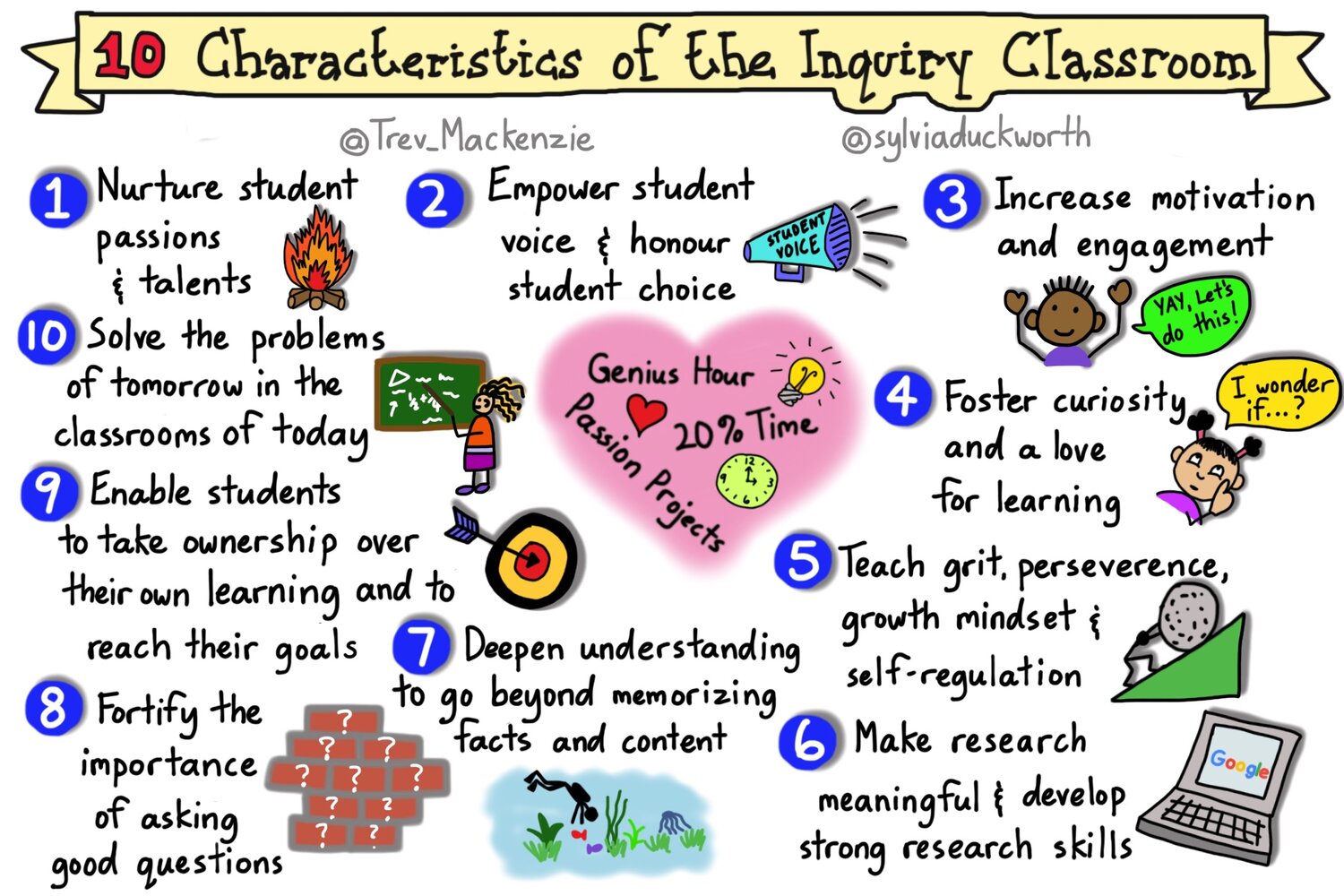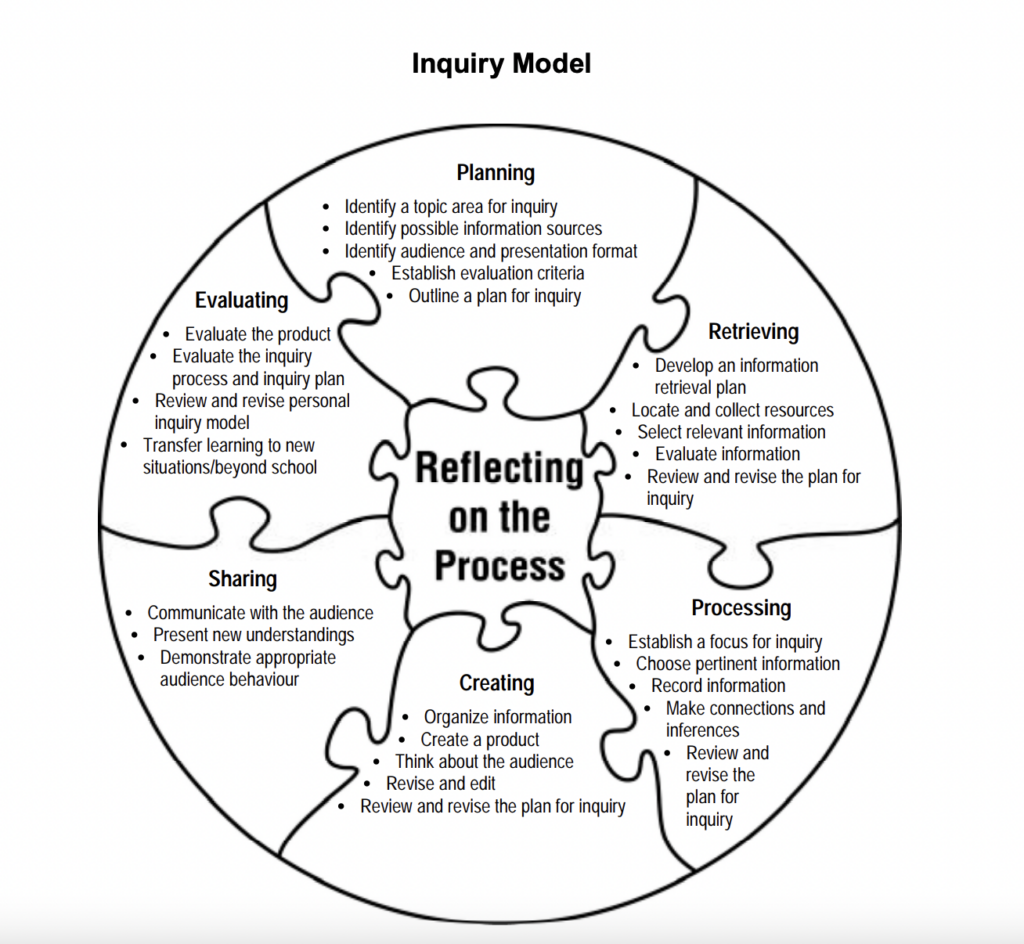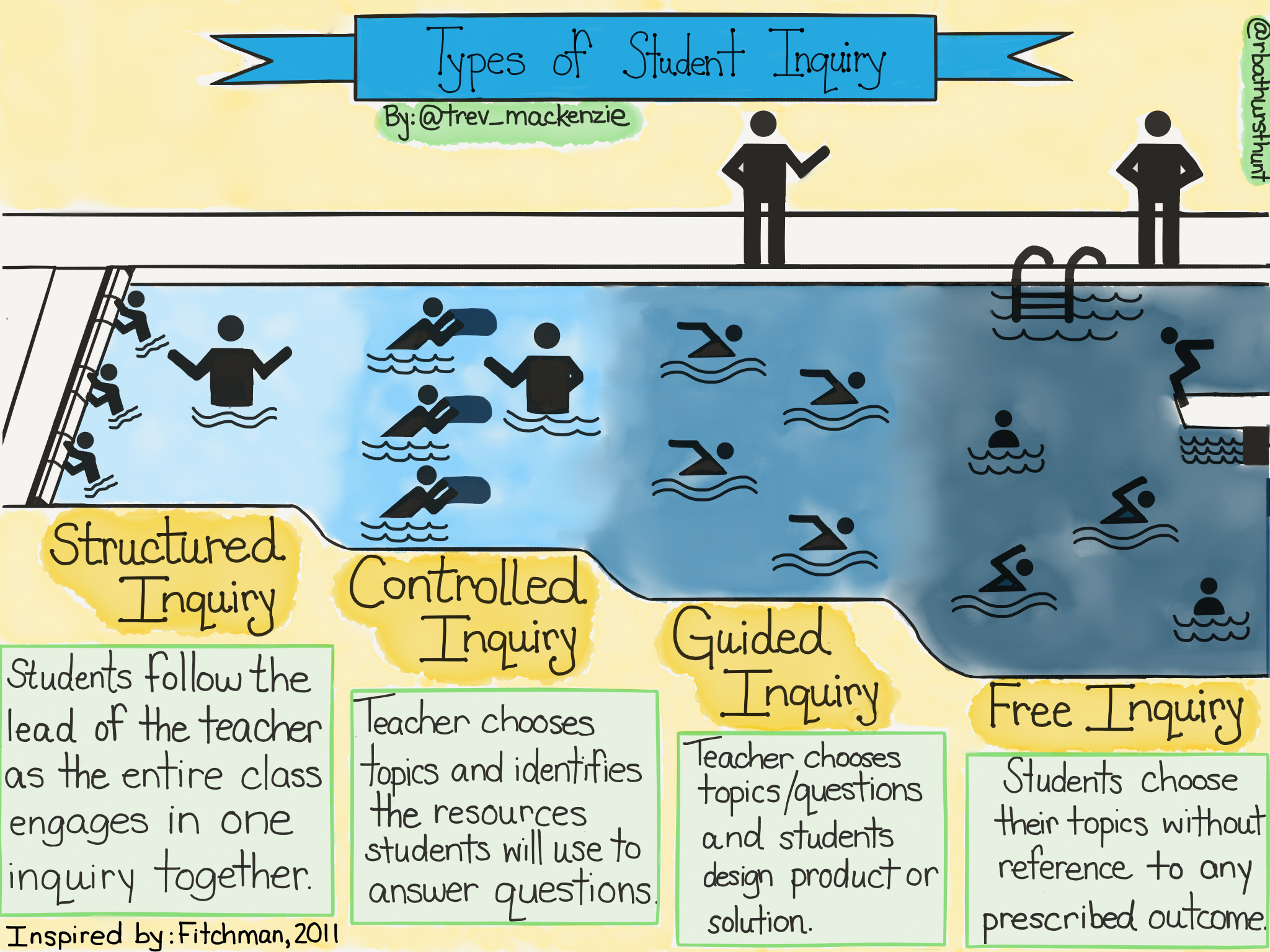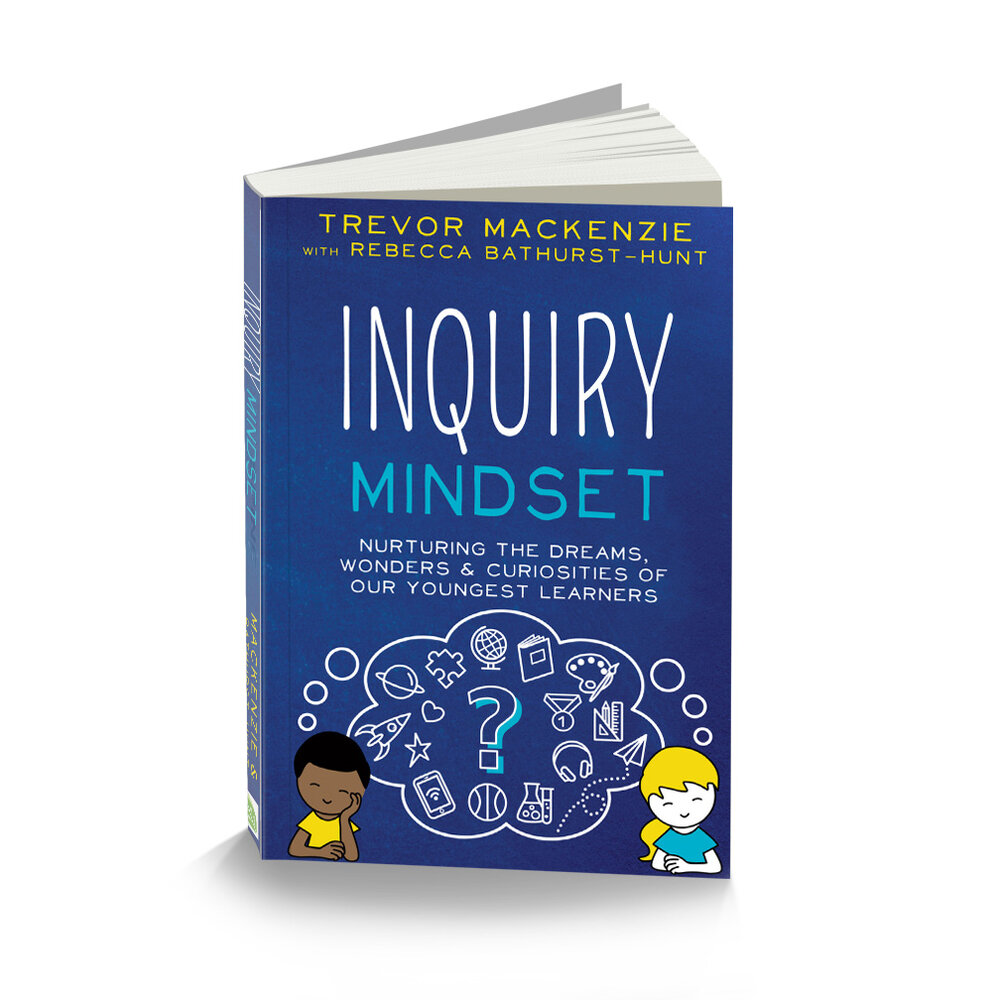- Overview of Inquiry-Based Learning
Inquiry is about exploring wonders and triggering curiosity. According to the Alberta Focus on Inquiry, inquiry based-learning is “a process where students are involved in their learning, create essential questions, investigate widely. and then build new understandings, meanings, and knowledge. (Alberta Focus on Inquiry, 2004, p. 1). Essentially, inquiry-based learning is a student-centred learning design that allows students to investigate their own interests and present their learning to others.
Why use Inquiry-Based Learning

The inquiry method supports a love for learning. Students are allowed to investigate what they are interested in and passionate about. Thus learning experiences become more authentic to them and they are much more likely to be engaged in the classroom and excited to learn. Additionally, by honouring student voice and choice teachers can establish a sense of belonging in the classroom. One of the most impactful benefits of inquiry-based learning is its ability to teach perseverance. Students are encouraged to fail and try again. By creating this growth mindset in our students, educators are much more likely to establish lifelong learners with a thirst for knowledge.
The Inquiry Model
Below are the stages for inquiry and the important steps at each stage.

The 4 kinds of Inquiry
The types of inquiry follow the gradual release of responsibility (Vygotsky). Teachers scaffold learning experiences to gradually increase student agency.

The most important factor to keep in mind when adopting inquiry-based learning in the classroom is that although it is a student-centred learning experience, the teacher’s facilitation is instrumental to its success. According to the Inquiry Mindset “A successful inquiry begins and ends with the teaching working with the students in inquiry” (Mackenzie and Bathurst-Hunt, 2018, p. 2). Like the students, inquiry teachers should also be playful, passionate, and curious. Teachers are important to help students find resources that can support their research and can help design objectives for students to meet their roles. Through effective inquiry facilitation, teachers can “create an atmosphere that promotes and strengthens the relationship or interaction between students and teachers and students with students” (Shanmugavelu et al., 2020, p. 8).
- How the Inquiry approach aligns with my chosen topic.
My group is exploring play-based learning, specifically play-based learning outdoors. Play-based learning is inquiry because it is self-guided learning driven by curiosity and wonder. Play-based and inquiry-based learning are both constructivist approaches that place students and the centre of their learning and allow them to make meaning out of their own individual experiences and interactions. According to the Ontario Ministry of Education “Play is an optimal context for enabling children to work out their ideas and theories […] Innately curious, children explore, manipulate, build, create, wonder, and ask questions naturally, moving through the world in what might be called an “inquiry stance”” (Ontario Ministry of Education, 2019).
- The Inquiry Approach and our Interactive Learning Design
In our Interactive Learning Design, our students will be rotating through 4 different learning centres that each follow a different subject area. In these centres, students will be playing with the environment around them. Like in inquiry, their curiosities and wonders are driving their learning. In our science activity, students are exploring their environment and are welcome to question and explore the plants that are native to their community. In our math activity, students are playing with the materials around them to create their own manipulatives for counting and pattern designing.
Examples of inquiry in Vancouver Island schools
Inquiry Mindset by Trevor Mackenzie and Rebecca Bathurst-Hunt
Two Vancouver Island teachers who follow the inquiry method with their High School and Kindergarten classes.

https://rbathursthuntblog.wordpress.com/
https://www.trevormackenzie.com/
PSII: a school on the island that follows the inquiry method with all of their students. PSII students have the opportunity to engage in authentic learning experiences and co-design their learning paths.
https://learningstorm.org/inquiry-tools/
References
Wolpert-Gawron, H. (2016, August 11). What the Heck Is Inquiry-Based Learning? Edutopia; George Lucas Educational Foundation. https://www.edutopia.org/blog/what-heck-inquiry-based-learning-heather-wolpert-gawron
Focus on Inquiry: A teacher’s guide to implementing inquiry-based learning. Edmonton: Alberta Learning, 2004. https://open.alberta.ca/dataset/032c67af-325c-4039-a0f3-100f44306910/resource/b7585634-fabe-4488-a836-af22f1cbab2a/download/29065832004focusoninquiry.pdf
MacKenzie, T., & Bathurst-Hunt, R. (2018). Inquiry mindset: nurturing the dreams, wonders, & curiosities of our youngest learners. Irvine, California: EdTechTeam Press.
Ontario Ministry of Education. (2019, May 15). Play-based learning in a culture of Inquiry. Ontario.ca. https://www.ontario.ca/document/kindergarten-program-2016/play-based-learning-culture-inquiry
Shanmugavelu, G., Parasuraman, B., Ariffin, K., Kannan, B., & Vadivelu, M. (2020). Inquiry Method in the Teaching and Learning Process. Shanlax International Journal of Education, 8(3), 6–9. https://doi.org/10.34293/education.v8i3.2396
Hi Maddie,
I absolutely love Inquiry-based learning. It provides students with an opportunity to learn about a topic that they are interested and still meet the curriculum requirements. This learning approach is a great way to boost students’ interest and motivation because they will be learning about something that is up their ally. Inquiry-based learning also gives students a chance to reflect on their learning processes. Doing this provides students the opportunity to evaluate what went well and what did not so they can make changes for future learning experiences.